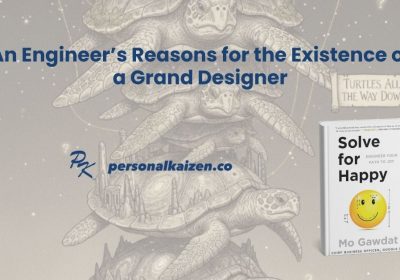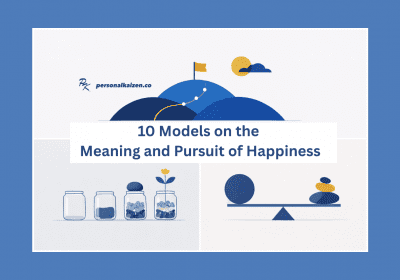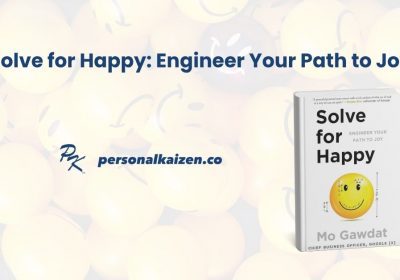
Have you ever asked yourself if the choices you are making in your life are the right ones? This month we are summarizing the 2021 Derek Sivers book How to Live: 27 conflicting answers and one weird conclusion.
I love this simple book. Sivers goes all-in on 27 different, and contrasting, philosophies for how to live your life. All 27 are listed below, and Sivers makes a strong, rational, and logical case for each of these ways. Which one (or more) resonates with you?
Conflicting Answers from How to Live
Most of Sivers’ answers to How to Live are explained in 3-6 pages of simple, rational arguments. Below are the 27 conflicting answers shared in How to Live.
- Be independent
- Commit
- Fill your senses
- Do nothing
- Think super-long-term
- Intertwine with the world
- Make memories
- Master something
- Let randomness rule
- Pursue pain
- Do whatever you want now
- Be a famous pioneer
- Chase the future
- Value only what has endured
- Learn
- Follow the great book
- Laugh at life
- Prepare for the worst
- Live for others
- Get rich
- Reinvent yourself regularly
- Love
- Create
- Don’t die
- Make a million mistakes
- Make change
- Balance everything
Favorite passages from How to Live
I suggest you buy the book and see what ideas excite you. Here are a few passages from How to Live that resonated with me:
“The English word “decide” comes from Latin ‘to cut off’.
Choose one and cut off other options.
To go one direction means you’re not going other directions.”

“We overestimate what we can do in one year.
We underestimate what we can do in ten years.
If you take up a new hobby at the age of forty, or whatever age
you think is too late, you’ll be an expert by the age of sixty.”
“Virtue is in the balance between extremes.
Between the insecure and the egomaniac: confidence.
Between the uptight and the clown: grace.
Between the coward and the daredevil: courage.
Between selfishness and sacrifice: generosity.
So, the way to live is to balance everything.

Imagine the different aspects of your life as the spokes
in a wheel: health, wealth, intellectual, emotional, spiritual,
or however you divide it.
If any of these are lacking, it makes a lopsided, wobbly wheel,
causing you to crash.
But if you keep the parts of your life balanced, your wheel is
round, and you can roll easily.”
Where to Live from How to Live
Here are a few of the conflicting passages on where to live:
“Live where you feel most free.
Move symbolically far away from where you grew up.
Living in a foreign place helps make it clear that
this culture’s rules don’t apply to you.”
“The best place for self-reliance is a rural off-the-grid home.
Generate your own electricity.
Collect your own water.
Grow your own food.
Or have no home at all.”
“When you have no home, the whole world is your home.
Be a nomadic minimalist to break dependencies on stuff.
Our hunter-gatherer ancestors thrived by carrying nothing,
then finding or making what they needed.”

“Be a perpetual traveler, living out of a suitcase.
Move to a new country every few months, never a registered
resident of anywhere.”
“When you stay in one place, daily life is better.
There’s little incentive for businesses to give good service to
someone who’s only passing through.
But by committing to a community, people treat you better.
The rules are different.
They know they’ll see you every week so it’s in their best
interest to treat you well.
You’re more of a friend than a stranger.”
After reading these, which passage resonates with you right now? Are you living that way? Can you make that choice?
Our Thoughts on How to Live from How to Live
After reviewing 27 contrasting answers on how to live, some of you may want to know which one resonated the most with me. And what was Sivers’ weird conclusion?
We recently reviewed the 2024 Derek Sivers book, Useful, Not True. This great book points out that almost nothing people say is true (objectively and without personal perspective), but rather just beliefs. Therefore, we should select beliefs and perspectives that are useful to us as we live our lives. The choices we make are always the right ones, if we choose to make them so.
Sivers notes that he wrote Useful, Not True as the prequel to How to Live. I believe that Sivers wants us to read How to Live knowing that nothing in the book is true. Everything in the book that resonates with you is just a belief – your belief. There are no right or wrong answers. Your goal is to read the book and choose what is useful to you at this moment in time.
Summary
Sivers is one of my favorite 21st-century philosophers. I highly recommend you buy How to Live: 27 conflicting answers and one weird conclusion on his website, and maybe buy a few extra hardcover books for just $4 each to share with people you care about.
Please share your thoughts on how to live below.





I shared this post with author Derek Sivers and received this note in reply:
“Hi Steve –
Awwww…. I love this! It was so nice to see!
Especially “Sivers wants us to read How to Live knowing that nothing in the book is true.” You’re the first one to catch that, or to say it directly. Thanks for getting it. 🙂 It’s really an honor.”
Derek – THANK YOU for writing this thought-provoking book!